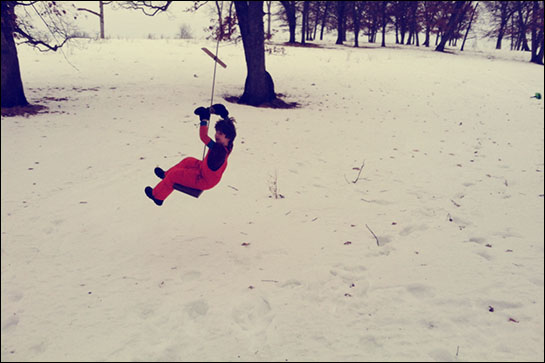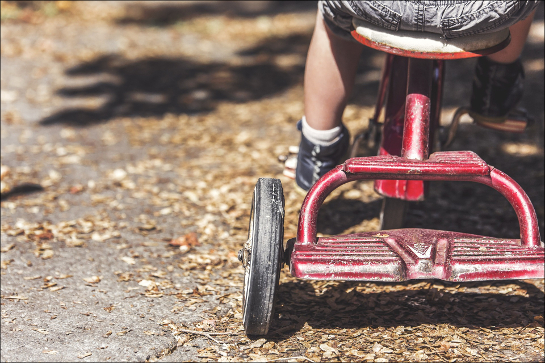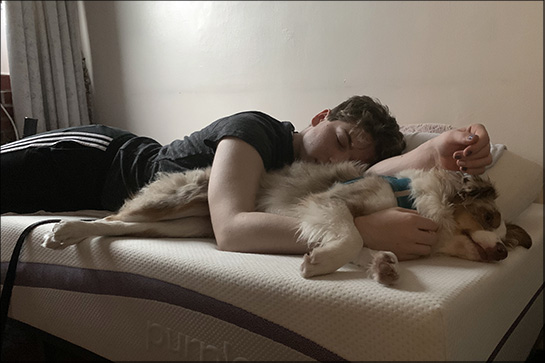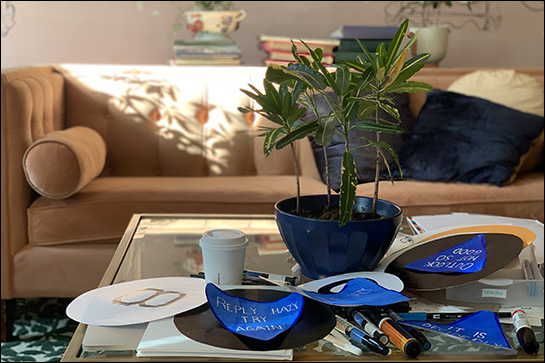
Kids need a primary caretaker during the first three years of their life. When a baby is unclear on who that primary person is the baby gets attachment disorder – which is a nice way of saying brain damage. Other than those three years, twin studies show there is not much you can do to change outcomes in adult life.
If you separate two twin boys at birth, and give them each to different adoptive parents, and they never meet, they will still have sex for the first time at the same age, pick similar jobs and even have similar haircuts. That research really convinced me of how little impact parental steering has on kids.
Then why do parents stay home? To enjoy their kids. To make family life nicer. And to make childhood nicer. Kids who have happier childhood memories are healthier and less depressed as adults.
We have cognitive dissonance because humans have been passing off their kids to someone else for so long.
In early history, children were separated at from their parents around age seven and worked alongside with adults for the rest of their lives. The child was protected not by one parent, but by the community, or the adult who depended on the child’s labor.
In the Middle Ages, the Church was responsible for moral development of children, and it was a parent’s job to hand a child over – spiritually – to the Church. Parents handed over their children physically as well, because when kids became an apprentice or a servant and their master had the same rights as a parent.
The industrial revolution factory replaced the family when work hours became so long as to take all a child’s waking hours. And when that felt unethical, communities built schools and passed off moral development to the school. In fact, the early school doctrines expressly say that schools will take over a parent’s job of moral education because the school will do it better
In 1966 the government became a higher authority than the parents when the Supreme Court ruled that teachers can spank students even if the parent does not want it.
Giving up economic opportunity to take care of children yourself is a radical and revolutionary act given our history of childcare. There is one opportunity we have in life to feel unconditionally loved and important: our parents. But very few parents convey to their children that their children are the most important priority. Today parents balance economic opportunity and caretaking. Not out of financial necessity, but because neither parent wants to say, “My child is my top priority.” It’s too boring.
Kids have that knowledge: I am not my parent’s top priority because I am boring. And you can tell an adult who experienced that feeling because (even if they don’t know it) they are still trying to do something to get their parent’s attention
Throughout history people have told parents they are not qualified to manage their children. And parents have felt somehow unqualified to be with their children all day. But what if the main purpose of childhood is to create good memories? Then parents are the most qualified. Because the impact of feeling like you’re most important in childhood can never be duplicated and you take it everywhere you go.
It’s difficult to get perspective looking at ourselves through the eyes of the parents sitting next to us. But if you look at a more broad historical perspective, staying home to school your kids is novel and adventurous and places the values of connection, relationships and mental health front and center. Which is probably where you thought they should be all along. And it’s probably why parents love looking at photos of their kids making good memories. Instinctively we know that’s a job well done.




